About Us
Field Team
Jacqueline Houghton
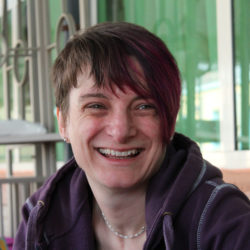
Field trip leader. Jacqui is an Associate Professor in Geological Sciences in the School of Earth and Environment at the University of Leeds. She is an Executive Counsellor on the committee of the International Association for Geoscience Diversity (IAGD), Co-Director for Diversity in Geoscience, UK (DiG-UK), the UK chapter of the IAGD and lead on the University of Leeds' Virtual Landscapes project. Jacqui teaches structural geology, geological maps and field skills. She has lead many field trips, including the second year Deformation Processes field trip to Rhoscolyn, Anglesey, and has supervised third year dissertation mapping students working in the Carmel Head area on the northwest coast of Anglesey.
Dan Morgan
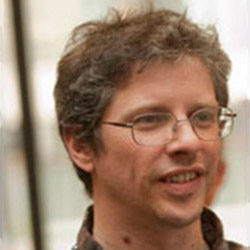
Dan is an Associate Professor in Igneous Petrology & Volcanology and Director of Undergraduate Education in the School of Earth and Environment at the University of Leeds. He teaches mineralogy, petrology, gemstones and leads the second year field trip to Connemara. Dan is the Leeds lead for the HEFCE project "Embedding and sustaining inclusive STEM practices".
Alison Stokes
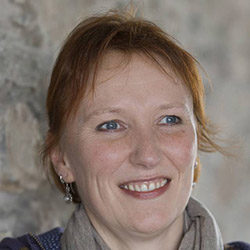
Alison is a Lecturer in Earth and Environmental Science Education in the School of Geography, Earth and Environmental Sciences at the University of Plymouth. She was previously an Executive Counsellor for the International Association for Geoscience Diversity, and is Co-Director for DiG-UK along with Jacqui Houghton. Alison has specific expertise in experiential learning and accessible fieldwork, and is the Plymouth lead for the HEFCE project “Embedding and sustaining inclusive STEM practices”.
Chris Atchison
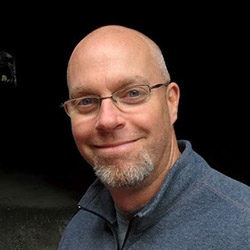
Dr. Chris Atchison is an Associate Professor of Geoscience Education in the School of Education and Department of Geology at the University of Cincinnati (USA) and Executive Director of the International Association for Geoscience Diversity. His research focuses primarily on establishing inclusive communities of learning through the development of accessible field courses using best universally-designed pedagogical practices to accommodate and fully include students, faculty and geoscience practitioners with apparent and non-apparent disabilities. Chris has led accessible field courses on a variety of geoscience topics in four different countries.
Clare Gordon
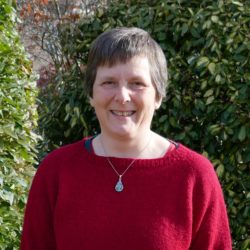
Clare is a Lecturer in Geographic Information Systems (GIS) in the School of Earth and Environment at the University of Leeds. As well as using her GIS knowledge as part of the Virtual Landscapes project, setting up virtual training environments for geological field skills training, Clare will be assisting with the Anglesey field trip.
Ben Craven
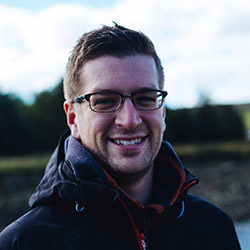
Ben is the Geoscience Software & Data Support Officer for the Masters courses in Structural Geology with Geophysics and Exploration Geophysics in the School of Earth and Environment at the University of Leeds.
Trevor Collins
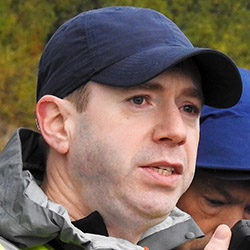
Trevor is a Research Fellow in Technology Enhanced Learning at The Open University’s Knowledge Media Institute. His research focuses on the design and development of educational technology to support inclusive education. Within the context of fieldwork learning, he has developed the use of portable networks and mobile technologies to facilitate remote access to field sites for mobility impaired students, and to support data collection and analysis in the field by groups of students. Trevor is the lead for the HEFCE project “Embedding and sustaining inclusive STEM practices”.
The Project
Embedding and sustaining inclusive STEM practices project
The field trip is funded by the “Embedding and sustaining inclusive STEM practices” project, which is part of the Higher Education Funding Council in England (HEFCE) catalyst award “Addressing barriers to student success”. The two year project is a collaboration between The Open University (lead institution), the University of Leeds and Plymouth University. It aims to share and promote inclusive educational practices within the Science, Technology, Engineering and Math (STEM) disciplines in UK universities, with the intention of benefiting all students, while lowering and removing barriers impeding students with disabilities. It is gathering and sharing case studies to evidence the impact of inclusive design and produce cross-institutional guidelines and recommendations for dissemination to HE sector and professional associations.
The field trip is one of the case studies for the project. Its purpose is to explore which methods assist inclusion and accessibility in the field and to develop and share good practice. Planned field based methods include the use of local wireless networks, video streaming, all terrain wheelchairs, tour guide audio systems etc. Remote learning methods (for use in a vehicle or back at base) include virtual reality, aerial and hi-res photographs and the Open University’s Virtual Microscope.
